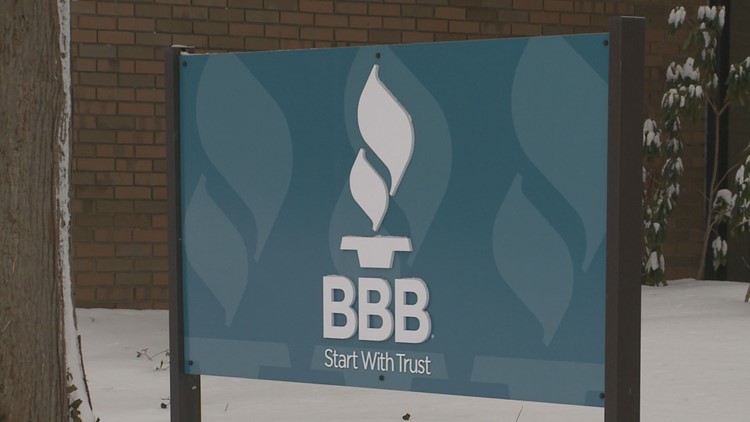MICHIGAN, USA — The Better Business Bureau (BBB) is warning Michiganders against government impostor scams, which became more common during the COVID-19 pandemic.
Scammers may pose as government officials requesting money or offering government grants for a fee, the BBB says.
In Grand Rapids, a woman was messaged by a friend about a government grant. She then provided her personal details over a phone call to someone claiming to be a government official. The scammer then said she had to pay $800 through gift cards, Bitcoin or CashApp in order to receive a $50,000 grant. The victim then asked the scammer to remove her number from his list, but the BBB says he refused to do so.
While the frequency of government impostor scams has decreased since its peak in 2021, the BBB says Michiganders have lost twice as much money since then.
"Scammers look to take advantage of individuals who find themselves vulnerable following the pandemic,” says Lisa Frohnapfel, President and CEO of the Better Business Bureau Serving Western Michigan. “Be wary of unsolicited calls, texts, emails or letters and investigate the legitimacy of an offer with a trusted source like the BBB before you act.”
With impostor scams ranking as the second most frequent scams in 2021, consumers reported over $445 million in losses that year.
In Lansing, a woman received a call from a scammer claiming to be a government official. The scammer told her there was fraudulent activity connected to her social security number, and asked the woman for her personal information. She refused, and the BBB says the woman is still receiving phone calls from the same number a year later.
The BBB released tips to avoid being scammed:
- A government agency will not call you. Government agencies like the Social Security Administration, IRS or FBI do not call people with threats or promises of money. The SSA will never threaten you because of an identity theft problem and social security numbers are never “suspended”.
- Do not always trust your caller ID. Scammers can spoof numbers, making it appear as if they are calling from a government agency. Check with the real agency by going to the agency's website directly, then click contact us to find out how to connect. Do not trust numbers that may be included in emails, text messages or internet searches.
- Do not click on links inside a text message or email claiming to be from a government agency. Scammers can lead you to fake sites that look legitimate.
- Never provide your bank account or other personal information to anyone who calls you. The IRS generally makes its first contact with people by regular mail – not by phone – about taxes.
- Never pay with a gift card, wire transfer or cryptocurrency. No government agency will take those forms of payment.
- Don't pay for a "free" government grant. If you must pay money for a "free" grant, it isn't free. Go to Grants.gov for lists of official grants.
Government impostor scams often involve the Social Security Administration, law enforcement, the IRS or government grants.
If you believe you've encountered a scam, report it to the BBB using their Scam Tracker. For more information on government impostor scams, click here.
►Make it easy to keep up to date with more stories like this. Download the 13 ON YOUR SIDE app now.
Have a news tip? Email news@13onyourside.com, visit our Facebook page or Twitter. Subscribe to our YouTube channel.



